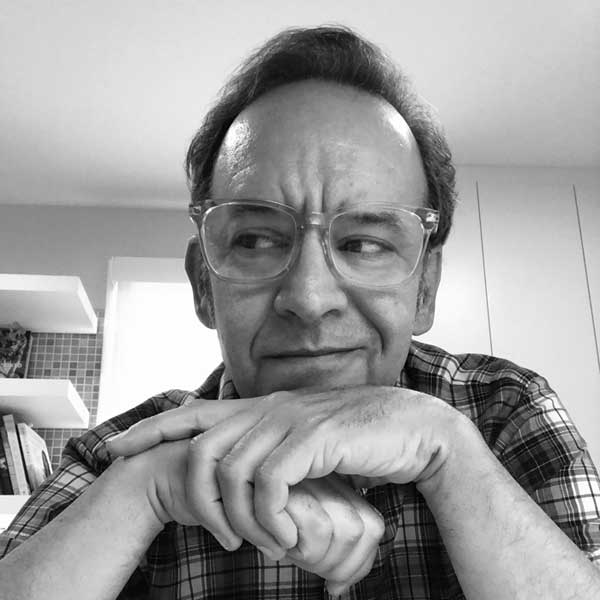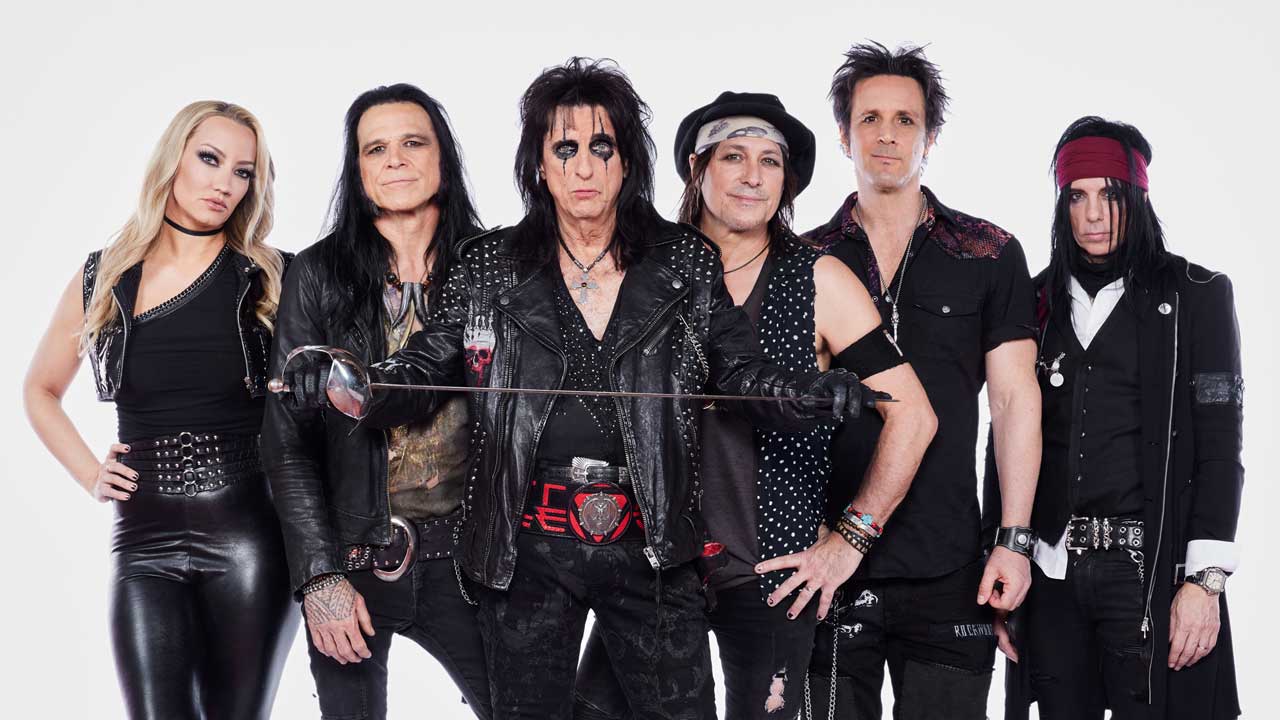Lindsey Buckingham's new album is a doozy but he's still thinking about Fleetwood Mac
Ousted from Fleetwood Mac, guitarist/vocalist Lindsey Buckingham bounced back with one of our albums of 2021, but he’s still hopeful that he can make one more record with the Mac

We had this legacy that was all about rising above our difficulties,” Lindsey Buckingham tells Classic Rock. “That was always the subtext of Fleetwood Mac – that we stayed together through thick and thin.”
Buckingham is reflecting on his lingering disappointment over being forced out of the band in 2018. It couldn’t have been fun seeing the Mac then tour without him, even if it did take two guitarists to fill his absence. “I didn’t see the show, but looking at the set list I thought: ‘Hmm, it’s like a covers band.’”
Add to that his triple bypass heart surgery, a vocal cord scare and covid, and it’s been a tumultuous few years for the singular 72-year-old-musician and producer. All of which helps make his brilliant new self-titled solo album such a triumph. Deeply personal songs, artful vocal arrangements and fiery guitar work – it has all his trademark touches, and also, as he describes below, a weird prescience about it.

This record totally upends the cliché of a seventy-something artist and diminishing returns and having your best work behind you.
Thank you, that’s very kind. I think a lot of it is about the choices you make along the way, and somehow not losing your perspective, you know? I’ve seen a lot of people do that. I’ve seen people in Fleetwood Mac do that, allowing themselves to be defined by external forces and expectations rather than their inner beliefs and the soul of where all this stuff should come from. Staying creative takes work and not getting distracted by the task of that, for sure.
What was your vision for the album?
I think much of my solo work collectively is a little more off to the left than what was generally offered in Fleetwood Mac. There was kind of a conscious interest when I was making this to circle back on earlier reference points that were less about defining myself as that counterpoint to the band. It encompasses all that I’ve learned by having taken that route, but it also comes together with the earlier parts of myself as they existed in Fleetwood Mac.
Sign up below to get the latest from Classic Rock, plus exclusive special offers, direct to your inbox!
I can hear how you circled back to more concise pop songs with simpler structures. But the ‘architecture’ on top of that makes the songs remarkable and distinct.
That’s always been in many ways what I contributed to Fleetwood Mac. Take songs of Stevie’s [Nicks], where she had the absolute centre of the song, which was the lyric and the melody but nothing around it. Songs like Dreams or Gypsy needed so much architecture around them to set off their potential. The same with Christine [McVie]. I don’t necessarily think of myself as a writer as much as a stylist. It’s all about the style and the architecture and the bigger picture of it.
Was On the Wrong Side written as a pointed comment on your life in Fleetwood Mac?
It’s sort of a comment on the challenges of being in a band where the machinery is so great that you have to keep fighting to rise above it. But weirdly, it was written before my departure from Fleetwood Mac. That’s not the only song that has that prescient thing. There are songs about my relationship with my wife too [Buckingham and his wife filed for divorce earlier this year, but are currently “working” on their relationship]. There was perhaps kind of a subconscious sense that crept into the writing of a lot of these songs. Likes postcards to my future self.
Songs having a subtext about intra-band relationships have always been part of your work.
Right. Much like Rumours had this subtext, and there was a point where the appeal and the popularity of that album started becoming less about the music and more about the success. Obviously there was a great appeal to the fact that we were laying bare our personal lives through the songs, but also that we were co-existing in a band together having been two couples who broke up. It was a musical soap opera. I think there has been a subtext that has emerged around the subject matter of this new album that I didn’t necessarily foresee.
Is it fun for you to make records completely by yourself?
I think working on my own has become a strength – that process of sitting alone with a machine and being able to discover things just as you’d slap paint on a canvas. I find that to be very exciting and very inspirational. It really began before Fleetwood Mac, when I was making the demos for the Buckingham Nicks album.
I was basically taking the lead from how Les Paul had bounced tracks back and forth, and playing everything myself. After Rumours, I think because I wanted to make an album like Tusk and undermine the external expectations that were about to take hold of us as a band had we made something like Rumours 2, I started down a path where I worked on my own.
Tusk remains such a divisive record. Forty years on, do you see it as a fork in the road, for both Fleetwood Mac and you personally?
I probably would’ve been quite happy to go on making more esoteric albums like that in Fleetwood Mac, but the politics dictated otherwise within the band. Mick [Fleetwood] and everyone else was initially sort of skeptical about what I wanted to do on Tusk, and then got drawn into it. But then when it didn’t sell sixteen million albums like Rumours there was a kind of a rethink about whether that was what we wanted to do.
So at that point I realised the only way for me to sort of continue to explore the more left side of my talent – which I was pretty sure was where the growth was going to lie for me as an artist – was that I was going to have to do it on solo albums. So I had this sort of schizophrenic tightrope thing I was walking between the big machine and the small machine, if you will.

It’s telling too that as a solo artist since Tusk you’ve been more prolific than the band. I was shocked to realise that the last Fleetwood Mac studio album, Say You Will, came out in 2003.
We did want to make an album far more recently, around 2012. I had a bunch of songs, and Mick and John [McVie] and I went in with the producer Mitchell Froom and cut a bunch of stuff. This was before Christine returned to the band in 2014. We very much wanted to draw Stevie in, and for some reason she refused to participate.
I have to assume that part of it is because like you said, I’d been very prolific. And again, that comes down to choices I’ve made. She, on the other hand, has sort of gotten a little bit disoriented in her wanting to pursue Stevie Nicks in capital letters, if you will. In defending the brand, as opposed to defending the creativity, I think she kind of lost track of her writing a little bit, and maybe didn’t think she had anything she felt she could offer, and so did not want to be a part of it.
That effort to engage her was revamped again when Christine returned, because it was like, well, Christine’s back, maybe now Stevie will want to do this. Christine had a bunch of song ideas and I helped her with those, and we eventually went in the studio and cut those. And we were still hoping to make that a Fleetwood Mac album, and Stevie wouldn’t do it. That became the duet album that Christine and I did [2017’s Lindsey Buckingham Christine McVie]. So it wasn’t for lack of trying [laughs].
Do you think this new album was the catalyst for you being let go from Fleetwood Mac?
Only indirectly. When Christine and I got off the road after touring the duet album, I had wanted to put out this current album almost immediately. There had been a Fleetwood Mac tour that had been scheduled for 2019, and I asked the band to kick that tour down the road a bit so I’d have an extra three months to do some dates behind my solo album. But certain members of the band were not willing to do that, one in particular.
That led to a sort of tension between us that we took into a MusicCares event that we did in New York, which was the actual evening that became the catalyst for us parting ways. That was again Stevie taking issue with some things that I said or did, apparently.
I think it was just sort of a pretence for her, at that point. But who knows? Certainly no one else in the band is on the same page in terms of that. But she gave the band an ultimatum. The irony of all that is for all of the things that we went through for those forty-three years, I mean, c’mon, this was nothing, really [laughs].
Is there hope for a reunion?
Who knows, maybe we’ll manage to see clear to have one more nice run out there. That would be the proper way to go.
And as if the past few years weren’t eventful enough, you also had triple-bypass heart surgery.
It’s in my family. My father passed away very young, at fifty-six, from a heart attack, and my brother was only forty-four when he did. On the other hand, I have an older brother who’s seven years older than me who’s doing great. I was having this other procedure which had nothing to do with my heart, and I came out of the anaesthesia and I was having a small heart attack and they went in and realised I needed a bypass right then.
It can be seen as a bit of a gift, because I was in a situation where I could be taken care of properly. Aside from the initial comeback, it’s been really pretty good. So I can say so far, so good [laughs].
Bill DeMain is a correspondent for BBC Glasgow, a regular contributor to MOJO, Classic Rock and Mental Floss, and the author of six books, including the best-selling Sgt. Pepper At 50. He is also an acclaimed musician and songwriter who's written for artists including Marshall Crenshaw, Teddy Thompson and Kim Richey. His songs have appeared in TV shows such as Private Practice and Sons of Anarchy. In 2013, he started Walkin' Nashville, a music history tour that's been the #1 rated activity on Trip Advisor. An avid bird-watcher, he also makes bird cards and prints.

